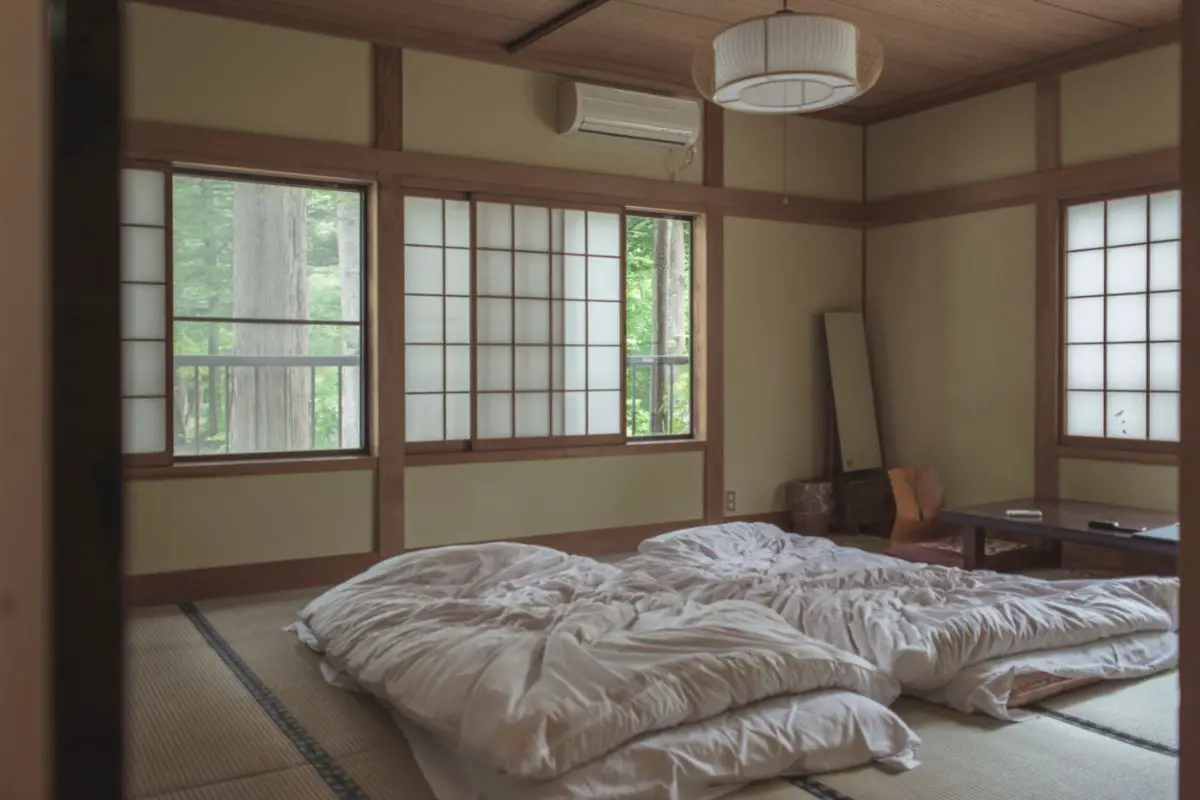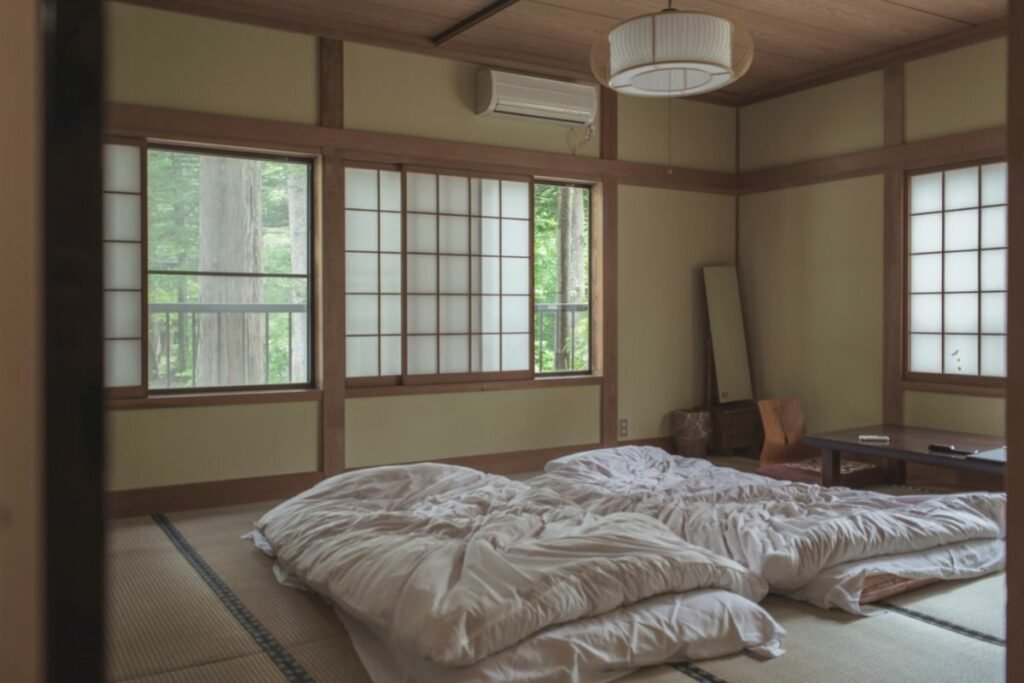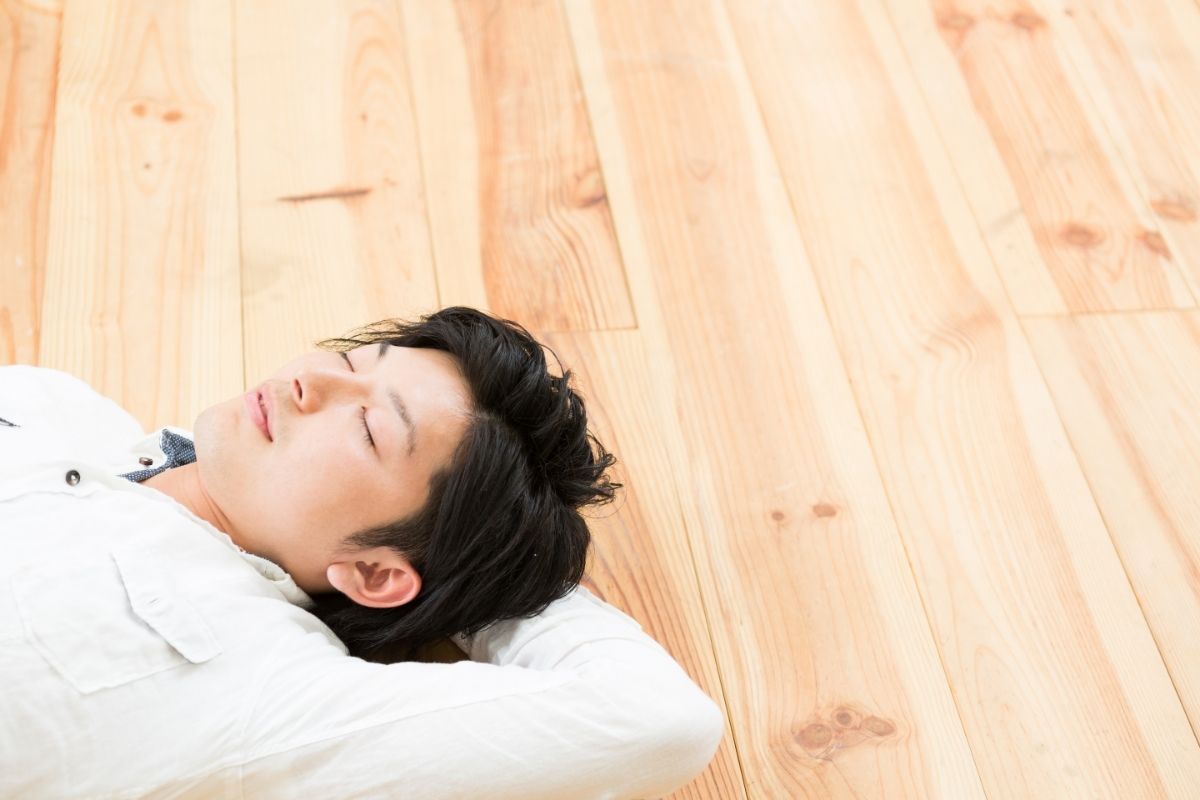Back pain is one of the most common health issues reported in the US. Approximately 65% of Americans suffer from back problems. However, finding a good mattress can greatly alleviate debilitating back pain.
People regard the Japanese futon for offering significant back pain relief. As such, futon sales have soared, and the variety of available futons seems as endless as the back pain we experience.

If you are one of the many suffering from a chronic or ongoing back condition and have heard futons are good for your back, read on. This article explains the pros and cons of using futons. We delve into the main types of futon mattresses that back pain sufferers should consider (see also, ‘What is a Futon?‘).
Scroll down to learn when a futon may not be good for your back, and other must-know information. Don’t forget to read our final thoughts on whether futons are good for your back.
What Is A Futon?
The Japanese derived word, futon, was originally given to a cushion stuffed with leaves, and made of 3 main parts. The futon has come along a little since then.
Although the traditional Japanese futon (that rolled directly out onto the floor) can still be found, the main futons sold are the modern western varieties.
Are Futons Good For Your Back?
The general consensus is that futons are good for your back. However, to answer this question fully, we need to look at the pros and cons of both traditional and Western futons.
The Traditional Japanese Futon
The traditional Japanese futon is essentially a bed (see also, ‘Can You Use a Futon as a Bed?‘) created with layers of fabric. They are laid directly onto the floor, without a bed frame. Unlike modern futons, these are far thinner and have no springs. Research suggests they are highly beneficial for alleviating back pain.
That said, elderly people, or those with extreme pain may have difficulty positioning themselves on the floor, and getting back up again.
Pros
- Aligns the spine
- Gradually improves back pain
- Studies indicate it is better for your back than regular mattresses.
- Strengthens the lower back muscles
- Enables the body to naturally turn rather than stay in a position of pain, during sleep.
Cons
1. Not good for elderly or those severely affected by back pain.
Are Western Futons Good For Your Back?
Western futons are by far the most popular choice of futon in the US. Although there are several varieties of the modern futon, they all provide similar benefits. Also, these futons are designed for use in conjunction with a bed frame.
Let’s take a look at the pros and cons of the Western futon for helping reduce back pain.
Pros
- Studies have shown they reduce moderate to severe pain over time.
- Like Japanese futons, these also enable alignment of the spine in any sleeping position.
- Provides support for back muscles due to the futon’s firm and uneven design.
- Improves sleep posture over time, thus improving back health and strength.
Cons
1. Although these futons aren’t in direct contact with the floor, they are still very low down. This makes lying down and getting back up pretty difficult if you are elderly, or suffer from a variety of health complaints.
What Type Of Futon Is Best For Your Back: Traditional Or Western?

Both types of futon are good for improving back pain. Research suggests that the traditional Japanese futon may be more effective for reducing chronic back pain, than the modern types.
Both kinds of futon help to align the spine, strengthen the back muscles, and improve overall sleeping posture.
That said, neither Japanese or Western futons should be considered a magic wand for diminishing your back problems. Whilst their benefits are undeniable, improvement is gradual. Also, they are not a promise for curing your pain completely.
When You Should Not Use S Futon For Back Pain
As we have discussed, elderly people will probably struggle with using a futon due to the fact that they are so low down. Additionally, those who suffer from several chronic health complaints may not get on with the set up of a futon.
Should you have movement difficulties, you can still benefit from a futon mattress. It is possible to buy a futon mattress and put it on your usual bed frame. This allows you to reap the health benefits a futon can offer without compromising on the height of your bed.
Should you decide to give this a shot, make sure you take proper measurements of your bed frame, to enable a precise fit.
Most futon stores will be more than happy to assist you with figuring out the bed frame dimensions, and a suitable futon mattress to address your needs.
Final Thoughts
If you suffer from ongoing back pain, anything that can alleviate it is worth a try. Back pain can be greatly reduced by changing your sleeping habits (see also ‘Do Japanese People Sleep On The Floor?‘). Switching your mattress to a firm alternative, enables your back muscles a chance to gain strength.
Over time, you will start to see more and more improvement to your back health, and your pain will decrease.
Good posture is a significant factor in determining the level of back pain you experience. Getting into the habit of ensuring good posture really helps to prevent and reduce pain and back trouble. Try to be aware of how you sit in the day.
Make sure you are standing upright and not slouching when you walk or sit. Swap your chair from a comfy nest to an upright and firm seat.
When it comes to sleeping and improving your back health, the firmer the mattress, the better you will feel. You may consider a futon uncomfortable initially. However, if you stick with it, you will very quickly adapt. Many people find a futon hard to adjust to at first.
However, before long they are realizing the benefits and experiencing a better night’s sleep and far less back pain. The majority of people who switch to using a futon say they would never return to the normal bed types again.









